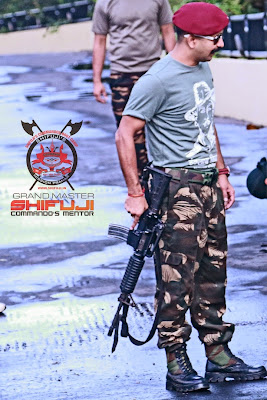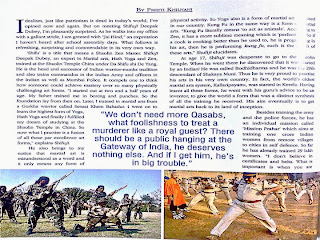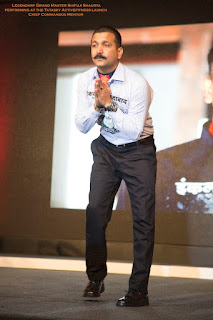





Courtesy T0-
http://www.datehookup.com/singles-content-a-free-guide-to-womens-self-defense-and-self-protection.htm
GREAT ARTICLE -
| Self defense and self protection are an important priority for women. The most common crime to happen to a woman is rape, but it is more about a feeling of dominance from one person over another rather than actual sex. According to statistics, the majority of rapes are perpetrated by men who women know. Assault on women is also a common crime because assailants assume women will be more passive and not fight back; this has to do with stereotypes of women. The best way for women to fight back against crime is to prevent it from happening by avoiding being alone or being in badly lit areas. However, getting into such situations is sometimes inevitable. The majority of rapes occur in the victim’s home. According to the Bureau of Justice, almost 40 percent of all rapes take place in the female victim’s home. In the event that rape prevention fails—such as by avoiding problem areas or making sure a woman is never alone—the best chance for survival is to fight back. Fighting back is not just necessary, but it is a moral right because protecting one’s self is paramount. The rest of the article will discuss why self defense is important, some tools and techniques for effective self defense, and information on gun use. Why Self Defense is Important Self defense is important because statistics say that all women are good candidates to become victims of violent crime at any point in their lives. According to statistics, a woman who is only 21 years of age has a 25 percent risk of suffering violent crime in her life. Self defense is more than just okay. When a woman's safety is in danger, defending herself by fighting back is the most ethical decision she can make. Why Women Are At Risk Some women find themselves at a greater risk for becoming the victim of either serious assault or murder. Even though women are targeted, the overall point is that their needless victimization could have been prevented. Even women who perform the necessary steps to stay alive—such as getting a restraining order, hiding, and filing criminal charges—still end up dead. Therefore, avoiding any violent attack is better that attempting to survive one. Crimes In general, there are several crimes that women are most at risk of. They are rape, carjacking, purse snatching, stalking, threats, domestic violence, and crimes against children in their protection. With each type of crime, women need to realize that they don’t have to give up and surrender to it or endure it. Up until the last second before the crime actually occurs, women usually still have the power to make decisions that can profoundly affect the outcome. Prevention Prevention relates to women making sure that they limit the situations they find themselves in that can then lead to serious crimes happening against them. Some tips include getting a large dog, avoiding dark areas at night, and making sure to stay within large groups of people when moving. Prevention is commonly the best measure. Still, women have to realize that prevention is not 100 percent effective and, thus, if worse comes to worse, then defending themselves is the best and final recourse. Tools and Techniques for Self Defense: Your Brain Women should always rely on their brains for self defense, particularly when it comes to forming the right staying-alive attitude. Using the brain for self defense is intimately tied to prevention. In order to use prevention methods to lower the risks of becoming crime statistics, women have to first use their brains to come up with the right precautions. If prevention falls short, then women will have to rely on their brains anyway in order to implement the physical actions necessary to protect themselves. Martial Arts and Self Defense Tactics While martial arts are effective at building esteem and a healthier body, they are overrated for self defense. The reasons for this is that martial arts can be taught improperly as well as taking too much time and effort to really master. For more effective self defense tactics, women should look at empty-handed or unarmed fighting techniques, some of which are designed just for women. This type of empowerment training is also quite efficient as well as fierce: a good course can teach women to render their would-be assailant unconscious. Dogs While dogs are good for defending their owners, they are not to be relied on as the only form of defense. Women who want to use dogs as a self defense tool need to understand that they must first be trained to do so, which will cost a considerable amount of money. The benefits of a dog for protection are obvious. For instance, sizable dogs can scare off would-be perpetrators, and noisy ones that bark a lot can even scare off would-be perpetrators from behind closed doors. Alarms and Whistles Alarms and whistles are not an effective way for women to stop or prevent an attack against them. The reason for this is that too much is left to chance: A woman who blows a whistle is gambling on the hope that not only someone will hear her whistle, but then also come to rescue her. Those risks are too great when a woman’s life is on the line. Furthermore, in the time it takes to actually sound an alarm or blow the whistle, the course of the attack may already be decided. Stun guns and Tasers A stun gun is not a traditional gun; it is a battery-powered and handheld device that sends an electric shock into an assailant. Tasers send metal barbs over a distance to attach themselves to an assailant; they are attached to the hand-held device through wires, which are electrified to immobilize an assailant at a distance. While these devices are quite effective at stopping assailants dead in their tracks, there may be legal issues to overcome. It is recommended that women who are interested in purchasing these devices consult a lawyer, their local police departments, or even research the legal issues surrounding stun guns and tasers themselves in order to determine if they can use them where they live. Aerosol Sprays When people talk about aerosol sprays in the context of self defense for women, they are usually talking about pepper spray, which is said to be the most effective, all-around self defense device you can arm yourself with. Pepper spray is extremely effective because it does not depend solely on the infliction of pain to immobilize an assailant. Pepper spray causes an assailant to be momentarily blinded and his bronchial tubes to get restricted, causing a lot of coughing and choking. If women are serious about purchasing pepper spray for self defense, they should purchase pepper spray that features Scoville Heat Units of between one and two million, which is the most effective spray for self defense. Firearms Firearms are an effective self defense weapon, but women who want to use them must obtain appropriate training in their operation because using one without the right training is ineffective. Learning about them involves being trained in both basic firearm usage as well as specialized courses that teach women about using them for self defense purposes. In order to decide what type of gun works best for her, a woman should go to a club that will afford her the chance to both handle and shoot several kinds of guns. That way, she will be able to determine what works best for her. Other Tools Women who want to protect themselves from would-be assailants need to consider other tools as alternatives to more common items like guns or pepper spray. One alternative is the persuader or kubotan, which is an almost six-inch long cylinder that is used for hitting or just pressure-point manipulation. Knives are yet another alternative, but for women to be effective at knifing an assailant, they have to allow the assailant to already get in close on them, which is risky. Brass knuckles are a poor alternative tool to self defense because women need a great deal of physical strength to properly strike an assailant. In addition, women may end up damaging their own hands in the strike.
Fear may be a strong motivator in uncertain times. Governments can only stretch so far, meaning some people are more than willing to pay private security companies to go the extra mile in protecting their loved ones. Firms operating in crisis zones around the world require protection as well, which has created a need for more vigilant and military-minded security service providers. Sometimes, these companies also assist governments and armed forces, providing highly trained armed personnel and logistical support. It’s a dog-eat-dog world out there, and it’s difficult to put a price tag on peace of mind. Read on for 30 of the most powerful private security companies in the world.
Originally going under the name Blackwater USA, American private military company ACADEMI was established in 1997 by ex-U.S. Navy SEAL Erik Prince. Blackwater was awarded its first government contract in 2000, and in order for the company to fulfill it, more than 100,000 sailors were trained for action. Blackwater was heavily – and controversially – involved in the Iraq War. In 2009 Prince stepped down as CEO, and the firm, by then known as Blackwater Worldwide, was rebranded Xe Services LLC. In 2010 private investors took over, and the company became ACADEMI in 2011. According to its official website, ACADEMI offers “stability and protection to people and locations experiencing turmoil.” And it works with “federal, state and local government clients, global commercial customers, numerous law enforcement and intelligence organizations and agencies and allied governments worldwide.”
Former Israel Security Agency and El Al Israel Airlines security personnel formed Israeli private security company ICTS International N.V. in 1982. The firm’s head offices are in Amstelveen in the Netherlands. According to its website, ICTS International “provides advanced, comprehensive security solutions for the aviation and homeland security sectors, with an emphasis on transportation security in general, and railroad and mass transport security in particular.” Set up in 2005, I-SEC International Security BV is the company’s airport and airline security wing. Towards the end of the 1990s, ICTS International created a computer technology called Advanced Passenger Screening, which is utilized by the majority of major U.S. airlines. Based on passenger information, the algorithm calculates the likelihood of passengers posing some kind of threat. In 2008 ICTS International’s revenue totaled $98.8 million.
Registered in the Dominican Republic, but with offices in Kentucky, Ukraine and the U.K., Northbridge Services Group is a private military contractor that claims to provide “highly confidential and effective security related services designed to address the needs of governments, multinational corporations, non-governmental organizations, the corporate sector and prominent individuals.” Northbridge’s current CEO and president is ex-U.S. Army lieutenant colonel and Vietnam veteran Robert Kovacic, who took up his post in 2003. The company’s key services include security advisory and training, operational and intelligence support, and strategic communications. Northbridge also supports law enforcement agencies in the realm of terrorism, narcotics, organized crime, poaching, smuggling, maritime defense and the protection of natural resources. In 2003 the company made headlines when it controversially offered to capture beleaguered then Liberian president Charles Taylor for a fee of $4 million. In 2012 Northbridge’s revenue totaled $50.5 million.
Triple Canopy is a private security, risk management and defense contracting company based in Reston, Virginia. Former U.S. Special Forces soldiers established the firm in Chicago in 2003, and a significant number of Triple Canopy’s employees are former special ops personnel and police officers. According to its official website, the company “provides mission support, security and training services to government agencies and multinational corporations worldwide.” Triple Canopy employs no less than 5,500 staff, and its clients include NGOs, telecommunication companies, oil and gas businesses, mining firms and financial organizations from all around the world. The company’s chain of command counts former Delta Force soldiers, consultants and analysts among its number. Triple Canopy rose to prominence in 2004 in Iraq, and one of its Iraq defense contracts is valued at $1.5 billion.
Prosegur is a multinational private security company with 150,000 staff spread out over Europe, Asia, Oceania and Latin America. The firm was established in 1976, and its head office is located in Madrid. Its service areas comprise manned guarding, home security, fire defense, and security technology and consulting. Prosegur is Spain’s biggest private security firm, and in 1987 it made history as the first company of its kind to be listed on the Madrid Stock Exchange. In 2011 the firm earned $233.748 million. With a task force of over 4,700 armored vans, Prosegur is well known for its cash-in-transit services, which it outsources to banks around the world. The company’s technology services include CCTV monitoring, access control, and “anti-intrusion and perimeter detection.” Meanwhile, guarding provisions feature armed and unarmed guards as well as K-9 units and VIP protection.
Aegis Defence Services is a British private military company established in 2002 by former Sandline International director and British soldier Tim Spicer. The firm has foreign offices in Iraq, Kenya, Nepal, Afghanistan, Bahrain and the USA. It also had a hand in the establishment of the British Association of Private Security Companies. The company is involved with NGO, aerospace, and government and diplomatic sectors, as well as oil, gas and mining industries. Currently, Aegis has a $293 million contract with the U.S. government to provide protection and assistance during the restructuring of Iraq. In 2011 the company also secured a $497 million contract to protect the U.S. Embassy situated in Kabul, Afghanistan.
Founded in 2007, Washington, D.C.- and Portland-based private military company GK Sierra started out producing secure communication technology for the U.S. government. Two years later, the firm, which is a wing of Genoa-Knowlton, Inc., started offering investigation and intelligence options among its services. At present GK Sierra gathers intelligence for the CIA. As well as having a Tel-Aviv office, the company is said to employ high-ranking Mossad operatives, which has led to accusations that it is in fact part of the Israeli Intelligence Service – allegations that GK Sierra has emphatically rejected. The company’s specialties include corporate investigation and intelligence, digital forensics, and encryption technology, while it is also purported to have “direct action” operatives on the ground in various countries around the world.
KBR is a private military, engineering and construction company based in Houston. It was formed in 1998, when Halliburton subsumed Dresser Industries and amalgamated Dresser subsidiary The M. W. Kellogg Co with its own subsidiary Brown & Root. KBR has worked in countries like Cuba, Kosovo and Afghanistan. Currently, its American workforce in Iraq numbers 14,000, and it is also said to have the biggest U.S. government contract there – beating out all other Iraq-based companies. In 2008, KBR declared that it was buying Alabama’s BE&K in a deal said to be worth $550 million. In 2011 KBR earned $540 million. And today it employs more than 27,000 people in over 70 countries across Europe, the Americas, Africa, Asia, Australia and the Middle East. Over the years, the firm has, however, been involved in its share of controversies – from allegations of sexual assault lodged by female employees, to paying off Nigerian officials for government contracts.
Formerly known as the Corps of Commissionaires, Corps Security is a British security company that officially speaking reports to Queen Elizabeth II. Established in 1859, it is said to be the world’s oldest security firm, and today it has a team of about 3,000 security personnel plus a dozen offices throughout the U.K. The company’s specialty is corporate security – including event protection, electronic surveillance, and consulting. According to its official website, Corps Security is “the leading supplier of specialist security solutions.” Dressed, upon request, in the company’s iconic Commissionaire Uniforms, Corps Security’s event protection unit secures high-profile sporting sites like Wembley Stadium and has a presence at important annual affairs such as the London Lord Mayor Show. Other services include manned guarding, CCTV surveillance, alarm response and key holding.
Headquartered in Lima, Peru, Defion Internacional is a private military company that supplies specialist security staff who are mostly recruited from Latin America. These personnel are often then contracted out to other companies; in fact, Defion Internacional first became known when it trained recruits to work with Triple Canopy in Iraq. Defion Internacional has bureaus in Sri Lanka, the Philippines, Iraq and Dubai, and the firm specializes in training bodyguards, drivers, and logistics and administrative personnel. Latin American security staff stationed in the Middle East have been described as “guns for hire.” Moreover: “A Peruvian in Baghdad will not panic if he has to face a blast or a blackout because he has already experienced that on the streets of Lima,” Defion Internacional administrative manager Alejandro Fernandez has explained.
Established as an independent company in 1999, ICTS Europe describes itself as “a global expert in the provision of leading edge security solutions for the transportation and public safety industries.” It offers rail, corporate and energy protection services, but its specialty is airport and airline security. And in addition, ICTS Europe has K-9, technology and “global solutions” capabilities. The firm currently works with more than 250 rail, education, business, health, aviation and public sector groups in Africa, Asia, the Middle East and Europe. ICTS Europe’s website claims that it is positively regarded in the aviation sector for its “forward thinking approach to problem solving and… capability to think outside the box when addressing unique operational challenges.” The company’s clients include Air France, Emirates, Etihad Airways, British Airways, and major airports like London’s Gatwick and Heathrow. In 2012 it brought in $479.072 million in revenue.
English brothers and lock makers Charles and Jeremiah Chubb established the company now known as Chubb Fire & Security in 1818 – the same year they patented their Chubb detector lock. The firm introduced its first safe in 1835; then in the 1870s it expanded to the USA. At the time, the country was suffering from violent bank robberies, so Chubb responded by producing a time lock to be attached to the doors of vaults and safes. In 2000 Chubb sold its lock division and switched its focus to security systems. Since 2003 the firm has been owned by U.S. multinational conglomerate United Technologies Corporation, and it is today based around the world. In the U.K., services include mobile patrols, remote surveillance and response, and key holding. Meanwhile, South African extras comprise armed response teams, electric fencing, and a special Chubb911 24-hour emergency hotline. In Australia, the company also offers a cash-in-transit service.
Established in Los Angeles in 1988, Andrews International is a California-based private security firm with offices across America. It also boasts branches in Mexico, Honduras and Colombia and has operatives in Canada and India. Andrews International provides armed and unarmed security guards for businesses as well as offering specialist government and defense department solutions. In 2009 it bought Canadian global security giant GardaWorld’s U.S. and Mexican guarding services for a sum exceeding $44 million. Andrews International describes itself as “one of the premier professional providers of a comprehensive range of superior security and risk mitigation services.” It adds that its security personnel protect “national landmarks, major tourist attractions, industrial sites, educational and financial institutions, healthcare facilities, and other locations where security stakes and client expectations are high.”
Asia Security Group is a somewhat mysterious seeming Afghanistan-based private security company that, according to its LinkedIn profile, offers “a range of consultancy and manpower support services to government and corporate clients to improve capability and ensure security.” The company has branches in Kabul, Mazar-e-Sharif, Jalalabad and Kandahar and boasts a team of licensed armed troops, promising “comprehensive security solutions tailored to your business needs, while mitigating risks, across Afghanistan.” Asia Security Group has worked with the U.S. forces in Afghanistan, guarding supply convoys in war-torn parts of the country. The company’s personnel have also joined up with U.S. private military firm DynCorp. Services include security, risk assessment and management, and “business development.”
British private security firm Erinys International has a head office in Cyprus as well as branches in the U.K., South Africa, and the Republic and Democratic Republic of Congo. The company operates within the mineral extraction, oil and gas, public, and NGO markets, and it also boasts an infrastructural development division. In each of these areas, it helps clients to appreciate risks they may face no matter how “remote and challenging the environment.” Erinys International was launched in 2001 by former British soldier Jonathan Garratt. Erinys South Africa was added in 2002, and the company has had a presence in a number of locations in Africa and the Middle East. In 2003 the firm worked with the Iraq Ministry of Oil, training and supplying a 16,000-strong “Oil Protection Force” guarding 282 sites.
Former South African policeman and Special Forces officer Chris Beukes founded TSU Protection Services in 1999, and it now claims to be one of South Africa’s top private security firms. “I realized that whilst there were lots of security companies across the country, very few were specializing in executive protection and the higher risk services, largely due to the lack of trained staff in these areas,” explained Beukes. “As a police officer the pay was adequate but not great, so I decided to launch TSU Protection Services to meet the gap in the market.” Now, with a force of highly trained operatives, the company serves high-profile businesses and other clients. Its specialties include armed personal escorts, executive protection and support, crowd control, and maritime security.
International Intelligence Limited is a British firm that focuses on counter-espionage and investigations. It was formed in 2002 by ex-aide to the British Royal Family Alex Bomberg. The company offers private investigation, technical surveillance counter-measure, intelligence, counter-intelligence, counter-surveillance and counter-espionage services, among others. Employees comprise former law enforcement, military, financial investigation and intelligence personnel. And specialist services include financial forensics, computer forensic analysis and satellite tracking. International Intelligence Limited has operated in the private, corporate and commercial sectors, as well as with government agencies, embassies and different police forces.
Australian firm Unity Resources Group was founded in 2000, and although its personnel are largely Antipodean, the company’s head office is in Dubai, UAE. Unity Resources Group offers crisis, risk, security, logistics, aviation, executive and medical services. It describes itself as “a trusted and reliable solutions provider of land, sea and air services in complex, challenging and fragile environments where dependable infrastructure may not be present.” The firm has offices in Europe, Australasia, Africa, North and South America, the Middle East and Central Asia, and it employs more than 1,200 people. Unity Resources Group provides event security, security in high-risk zones, asset security and guarding, and more. In 2007 some of its operatives were involved in a controversial incident in Baghdad in which two civilians were killed, but the firm defended the conduct of its employees.
The Senaca Group is a wide-ranging private security firm. Based in Ireland, the company includes Senaca EU and Senaca Canada and conducts operations around the world. Subdivisions comprise Senaca Guarding, Senaca Cash Management Services, Senaca Training, Senaca Tech, and private security company Integrated Risk Management Services. The firm works within the oil and gas, transport and logistics, financial, tourism, government, health, property, maritime, energy, NGO, and policing sectors. Integrated Risk Management Services offers guards, patrols, corporate security, alarm response and key holding, while Senaca Cash Management Services specializes in the transportation of money. At the same time, Senaca Tech affords a range of surveillance and “access control solutions” technology. Ex-Irish Army Special Forces major Jim Farrell and security veteran Terry Downes co-founded the Senaca Group in 2009. They also co-founded Integrated Risk Management Services in 2005.
Spy and detective Allan Pinkerton founded the Pinkerton National Detective Agency in Chicago in 1850. Nowadays, Pinkerton Government Services “offers a full range of cleared protective services designed to meet the specific requirements of the U.S. government.” It provides regular security services such as guards, fire fighting and emergency medical technicians, as well as specialized resources like sniffer dogs. In 2003 Pinkerton was acquired by Swedish security giant Securitas AB, and it is in the process of switching its name to Securitas Critical Infrastructure. Pinkerton has a lot of history: the company was tasked with tracking down notorious criminals such as Jesse James and Butch Cassidy, at one time worked with Abraham Lincoln, and has received mention on TV shows such as Boardwalk Empire.
Although based in Virginia, The Brink’s Company has a network that dots the global landscape: the firm operates in over 100 countries, with a staff of roughly 70,000. Perry Brink established Brink’s City Express in Chicago in 1859 and began using a horse-drawn wagon to move customers’ suitcases from local railroad stations to hotels. In 1891 the company made its first cash-in-transit delivery, transporting half a dozen bags filled with silver dollars. These days, Brink’s is perhaps best known for its fleet of armored vans, which it uses to help see to the needs of governments, mints, banks, jewelers and other businesses. It also offers ICD and airport security, guarding, and logistical and cash management services. In 2011 Brink’s brought in $3.9 billion in revenue.
CACI International was founded in Santa Monica, California in 1962 as the California Analysis Center, Incorporated. In 1967 the acronym was switched to signify the Consolidated Analysis Center, Incorporated; and the acronym itself became the company’s formal moniker in 1973. Although based in Arlington, Virginia, CACI International has more than 120 branches and employs around 15,000 people throughout the U.S. and Europe. The firm’s area of expertise is information technology, and it provides, in its own words, “information solutions and services in support of national security missions and government transformation for intelligence, defense, and federal civilian customers.” CACI International plays a role in assisting with matters concerning global threats and the readiness of America’s armed forces. In 2012 the company’s revenue was $3.8 billion.
U.S. tech consulting company Booz Allen Hamilton has head offices in Tysons Corner, Virginia. Edwin G. Booz, James L. Allen and Carl L. Hamilton founded the firm in 1914, and fast-forward to 2012 and its revenue reached $5.859 billion. Booz Allen Hamilton’s areas of service include engineering, management consulting and technology, but it also operates as a defense contractor. The company works with civilian and government institutions, and its website describes its main goal as providing “trusted consulting and professional services in an increasingly complex and growing world.” As far as civilian agencies go, the firm serves the financial, policing, transport, Homeland Security, and government health and management sectors, among others. It also works with the U.S. Army, Air Force, Navy and Marine Corps, as well as defense organizations, space agencies and intelligence groups.
Based in London, England, but with 36 offices around the world, Control Risks is an international professional services and consulting firm dedicated to “helping organizations manage political, integrity and security risks in complex and hostile environments.” Control Risks began as a division of insurance firm Hogg Robinson in 1975 and then became independent in 1982. As major companies around the world began working in lesser-known areas in the 1990s, Control Risks focused on developing its intelligence and investigation services. In its website statement, the company boasts that it provides “strategic consultancy, expert analysis and in-depth investigations through to handling sensitive political issues and providing practical on the ground protection and support.” Following its work in Iraq securing oil company assets, Control Risks generated $223.32 million in revenue in 2010.
Canadian firm GardaWorld claims to be the “largest privately-owned security company in the world.” The company’s headquarters are in Montreal, Quebec, but it employs around 45,000 people across North America, Europe, Africa, Asia, Latin America and the Middle East. GardaWorld secures individuals and resources in at least 140 cities and protects 28 North American airports. Its international protective services department aims to safeguard “clients in complex and emerging markets.” Meanwhile, the company’s cash management services process $5 billion a day. In August 2013 GardaWorld acquired G4S’ Canadian cash management division in a deal thought to be worth around $110 million. And in December 2013 GardaWorld agreed upon a 12-year cash management deal with Bank of America valued at $1.4 billion. At the end of April 2012, GardaWorld’s quarterly revenue totaled some $300 million.
The history of Annandale, Virginia-based private military contractor DynCorpstretches back to 1951, when Land-Air, Inc. was obtained by California Eastern Airways to form what would become California Eastern Aviation, Inc. In 1962 the company was renamed Dynalectron Corporation, which was renamed DynCorp in 1987. DynCorp’s services include security, aviation support, intelligence, and contingency ops. The firm’s yearly revenue exceeds $3 billion, and over 96 percent of that figure is generated by U.S. government contracts. DynCorp has provided support for the U.S. forces in countries like Peru, Colombia, Somalia, Kosovo, Kuwait, Bolivia, Angola and Haiti. The company was also called in to help with recovery action in Louisiana and the surrounding regions in the wake of Hurricane Katrina.
AlliedBarton is a Pennsylvania-based private security company that was established in 1957. Staffed by over 55,000 employees, who are divided among 120 offices around the USA, AlliedBarton is the biggest U.S.-owned security officer business in America. The company focuses on various different areas, including higher education campuses, commercial property, aerospace and defense sites, housing, malls, healthcare facilities, and chemical industries. Through its “Hire Our Heroes” program, AlliedBarton recruits former members of the armed forces, reservists and their relatives to bolster its staff of “highly trained security personnel.” In November 2013 Victory Media included AlliedBarton on its 2014 lists of Top Military Friendly and Military Spouse Friendly companies to work for. The firm specializes in “local response” and “national support.” In 2012 its annual revenue exceeded $1.9 billion.
ADT Corporation was founded in 1874 and today is one of America’s leading alarm and security monitoring companies. Based in Boca Ranton, Florida, the company operates in 35 countries around the world, supplying alarms, monitoring equipment and peace of mind to homes and small businesses. In South Africa, ADT provides armed response teams and around-the-clock surveillance. Originally known as American District Telegraph, ADT started out as a telegraph delivery business. Then from 1910, under new leadership from AT&T, it started to switch focus to other fields such as fire and intruder alarms. In 2011 ADT boasted an estimated 6.4 million clients and yearly turnover of $3.1 billion. And in 2012 it split from Swiss parent company Tyco International and commenced trading on the New York Stock Exchange as an independent company.
Established in Helsingborg, Sweden in 1934, Securitas AB is a worldwide security company with head offices in Stockholm. In 2012 the company had around 300,000 workers spread out over 53 countries and an annual revenue of over $10 billion. Securitas AB’s services include guards and patrols, investigations, home alarm systems, loss prevention, security consulting and guard dog supply. Its three chief departments are Security Services Europe, Security Services Ibero-America and Security Services North America. To facilitate its cash in transit service, Securitas AB operates specialist vehicles with metal safes as well as a fleet of bulletproof jeeps. It also specializes in securing sporting, business and recreational events.
G4S describes itself as “the world’s leading global security and outsourcing group,” specializing “in outsourcing of business processes in sectors where security and safety risks are considered a strategic threat.” The British multinational security giant was set up in 2004 when London-based company Securicor amalgamated with Danish business Group 4 Falck. Currently, G4S employs more than 620,000 people, which makes it the third biggest employer in the private sector globally. In 2012 G4S turned over well over $12 billion. The company offers a range of services, including the supply of security personnel, monitoring equipment, response units and secure prisoner transportation. G4S also works with governments overseas to deliver security.
|



























































































































































No comments:
Post a Comment